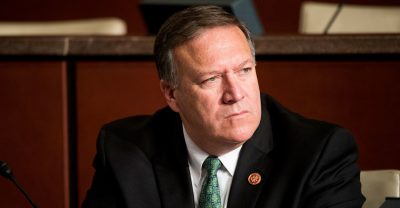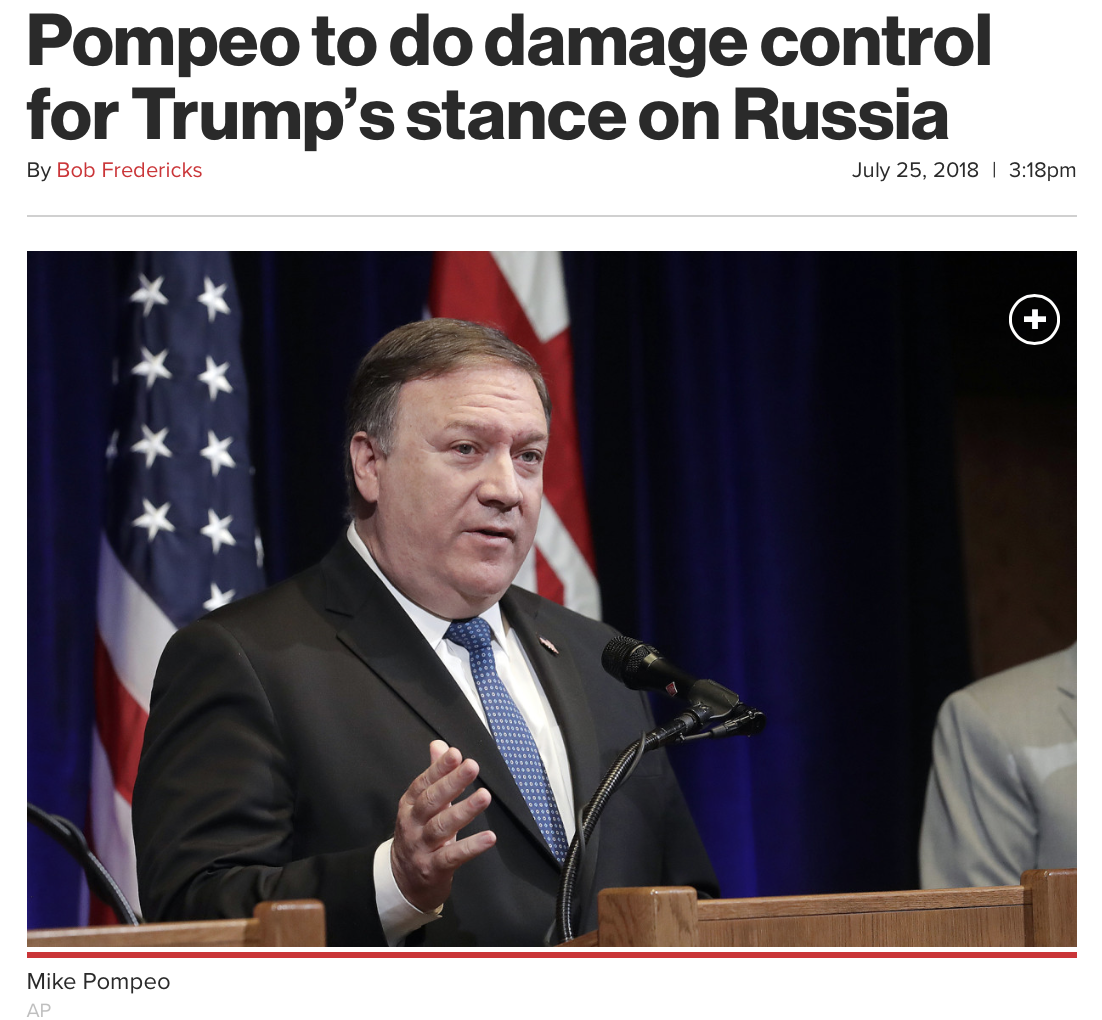Pompeo was a Firm Supporter of RussiaGate: Was he Jeopardizing Trump’s Foreign Policy Initiatives?
Video: Secretary of State Mike Pompeo Testifies Before The Senate Foreign Relations Committee

Note to readers: please click the share buttons above
It is worth noting that until the release of the Mueller report, Trump’s Secretary of State Mike Pompeo (and former CIA Director) was a firm supporter of the RussiaGate narrative. What is his position today?
How will the Mueller report affect US foreign policy?
Will Pompeo retain his position as Secretary of State?
This article was first published in July 2018
***
While both Trump and Pompeo are bona fide warmongers, Secretary of State Mike Pompeo –while upholding the President’s official statements– is also involved in countering Trump’s diplomatic, foreign policy and public relations initiatives.
Moreover, Pompeo seems to have endorsed the Russiagate narrative on behalf of the President.
He has been entrusted (not by Trump) to “convince senators that President Trump knows that Russia interfered in the 2016 election” See NY Post
“On Russia, Pompeo will tell senators that “I personally made clear to the Russians that there will be severe consequences for interference in our democratic process.” He doesn’t say what those consequences would be, but he goes on to list “a staggering number of actions to protect our interests,” including sanctions that were essentially forced upon the White House by Congress. He leaves open the question of whether Trump delivered a similarly tough message to Putin. Bloomberg News. (emphasis added)
The media casually tags Pompeo’s statement as “damage control” (on behalf of Trump).
What is at stake on the part of Secretary of State Pompeo is “damage” rather than “damage control”, i.e. a deliberate initiative to jeopardize the president’s public relations diplomacy initiatives with regard to Russia and North Korea, which go against the Russiagate consensus.
Video: Pompeo Before Senate Foreign Relations Committee
Prior to Helsinki, Pompeo was instrumental in jeopardizing the June 12-14 Trump-Kim Singapore Summit. Less than a month later in the words of the DPRK spokesperson following Pompeo’s visit to Pyongyang:
“We still cherish our good faith in President Trump … But, the U.S. side [Pompeo] came up only with its unilateral and gangster-like demand for denuclearization… The U.S. side [Pompeo] never mentioned the issue of establishing a peace regime on the Korean peninsula which is essential for defusing tension and preventing a war.” (DPRK Statement, July 8, 2018, emphasis added)
The Crimea Declaration
The controversial “Crimea Declaration” document hastily drafted by the US State Department was in large part directed against Trump who failed to blame or condemn Vladimir Putin at the Helsinki summit. Moreover, back in late June, responding to reporters on Air Force One regarding “US recognition of Russia’s claim on Crimea”, president Trump responded: “We’re going to have to see.”
In testimony to the Senate Foreign Relations Committee, Pompeo presented the “Crimea Declaration” which reasserted “U.S. condemnation of Russia’s 2014 attacks on Ukraine and its invasion and annexation of Crimea”. According to US press reports: “The declaration was designed, in part, to put to rest ambiguity created by Trump when he chose not to condemn Putin’s actions when the two appeared together in Helsinki, Finland, on July 16. (Los Angeles Times, July 25, 2018, emphasis added)
Pompeo however “refused to answer questions” –regarding Trump’s “contradictory” Helsinki statements. Neither did he respond to accusations by US Senators directed against the president for allegedly collaborating with the Russians.
With regard to Crimea, Moscow responded on the day following Pompeo’s statements to the Senate Committee, pointing to the democratic process underlying the reintegration of Crimea into the Russian Federation.
According to the Chairman of Russia’s Federation Council (Russia’s Senate) Foreign Affairs Committee Konstantin Kosachev. Washington’s “policy of non-recognition” of the reintegration of the Crimean peninsula into the Russian Federation is doomed to fail:
“Referring to their own experience of not recognizing the absorption of the Baltic republics into the USSR in 1940, [the Americans] ‘took a solemn oath’ to behave in the same way, this time concerning Crimea as part of Russia. American strategists believe (or want to believe) that these two stories are identical and that the strategy, which worked once, is suitable for all occasions. That’s a gross misconception,” he wrote on his Facebook page.
“History has indeed put everything in its proper place,” he stated.
“Crimea is a totally different story. There was no military force, nor was there any coercion. The overwhelming majority of the population supported the return to Russia, strongly and unequivocally, while its opponents were in the minority. These reports are not fake news akin to Soviet propaganda. This is the absolute truth,” the Russian senator stressed.
According to Kosachev, Washington now “opposes the people’s will.”
“See the difference. That’s doomed to failure, historically and politically,” he concluded.




